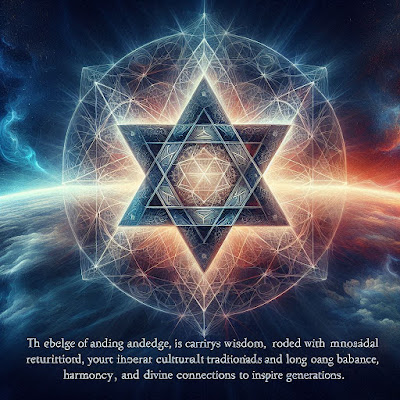The Powerful Connection Between Heart, Brain, Eye, and Ear: Activating Spiritual and Cognitive Growth Through the Qur'an
- Get link
- X
- Other Apps
One of the most profound ways to activate both the heart and the brain is through the study of the Qur'an, especially through the exploration of the verses related to the heart, the brain, the eye, and the ear. These sensory and cognitive faculties are deeply intertwined in Islamic thought, and their roles in spiritual and mental development are emphasized throughout the Qur'an and Hadith.
When we engage with the Qur'an, whether through recitation, reflection, or even writing, we activate the neuroplasticity of the brain, enhancing our cognitive functions while simultaneously nurturing the heart and soul. The Quran is not just a book of guidance; it is a tool for spiritual growth, mental clarity, and emotional healing. This process takes place on multiple levels—subconsciously, cognitively, and even at a neurobiological level.
The Role of the Qur'anic Verses in Activating the Heart and Brain
The Qur'an, being a divine revelation in Arabic, carries a unique linguistic power. The specific rhythms, phonetics, and syntax of the Arabic language stimulate the brain in a distinct way. When we study the verses of the Quran, we are not only engaging in linguistic activity; we are also activating neural pathways that promote emotional regulation, spiritual awareness, and cognitive transformation.
Cognitive Activation: As we study and reflect on the meanings of the Quranic verses in our native language, or write about them in both Arabic and our own language, we engage in multilingual processing. This dual engagement activates different parts of the brain, enhancing our ability to understand and retain complex concepts. The process of translation—transferring meaning from one language to another—requires higher cognitive functions and activates the neuroplastic pathways associated with learning and memory.
Subconscious Influence: The Quran’s recitation, particularly in its original Arabic, has the power to bypass the conscious mind and affect the subconscious. The repetition of certain words, phrases, and verses serves to reprogram the mind, changing patterns of thought and behavior over time. This leads to both emotional growth and mental clarity, as the brain begins to align with the divine truths found in the Quran.
Neuroplasticity: Just as physical exercise strengthens muscles, the brain can be restructured through regular engagement with the Quran. This process, known as neuroplasticity, involves the creation of new neural connections and the strengthening of existing ones. By studying Quranic verses, we are essentially reprogramming our minds, improving cognitive abilities, memory, and emotional responses. This leads to a deep spiritual and intellectual transformation.
The Eye and the Ear: Pathways to the Heart and Brain
In his renowned work, Risalatul Huqquq, Imam Zaynul Abideen (AS) profoundly highlights the roles of the eye and the ear as channels for knowledge, wisdom, and spiritual growth.
The Eye: According to Imam Zaynul Abideen, the eye is the passageway through which we receive knowledge. It is through the eye that we observe the world around us and, in turn, it becomes a means of learning. The Quran, which frequently references the "eyes" as instruments of perception and reflection, emphasizes that what we choose to focus on impacts both the brain and the heart.
- Learning Through Vision: When we read or visually engage with the Quran or other texts, the eye is the first point of contact. This engagement stimulates the brain's visual processing centers, helping us interpret and retain information. The act of seeing initiates the learning process, and when this information is absorbed, it affects our emotions and spiritual state. Just as the eye is the window to the world, it is also a window into deeper understanding and connection with the Divine.
The Ear: Imam Zaynul Abideen further points out that the ear is the channel through which concepts reach the heart. Listening to the Quran’s recitation, to the teachings of the Prophet (PBUH), and to wisdom shared by others, directly impacts our spiritual development. The ear not only hears sounds but also processes meaning, carrying wisdom and knowledge to the heart.
- Learning Through Listening: Listening engages both the brain and the heart. As the brain processes sound waves, the heart is moved by the emotional and spiritual resonance of the spoken word. When we listen to the Quran—whether reciting it ourselves or hearing its recitation—we are engaging in an act of spiritual absorption. The ear, as Imam Zaynul Abideen teaches, becomes the gateway to the heart, making it the perfect channel for the divine wisdom contained in the Quranic verses.
The Holistic Activation of Heart, Brain, Eye, and Ear
By studying the Quran, we engage all of our senses—the eye, the ear, and ultimately, the heart and brain. The Quran’s words, whether read, written, or listened to, activate various parts of the brain while simultaneously nourishing the spiritual heart.
- Reading: Activates cognitive functions (brain) and deepens spiritual reflection (heart).
- Writing: Reinforces understanding and memory, connecting the written word to the subconscious mind.
- Listening: Acts as a direct conduit to the heart, influencing both emotional regulation and spiritual connection.
- Vision (Eye): Provides the first step in learning, activating the brain’s visual processing and shaping our worldview.
As we immerse ourselves in the Quran, these powerful sensory pathways not only enhance our understanding but also allow us to reprogram the brain and heart, transforming our cognitive and emotional states. Through regular practice, we align our spiritual, mental, and emotional faculties, deepening our connection to both the Divine and the world around us.
Further Reading:
- Risalatul Huqquq (Treatise on Rights) by Imam Zaynul Abideen
- The Quran: A New Translation by M.A.S. Abdel Haleem
- The Quran and the Neuroplasticity of the Brain: A Spiritual Approach to Cognitive Enhancement
- Get link
- X
- Other Apps






Comments
Post a Comment